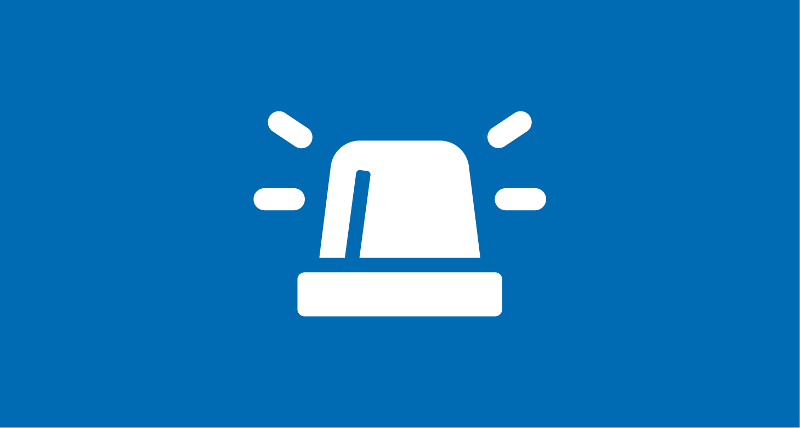Major Emergencies
An emergency is something that needs special arrangements to deal with it. They can occur on a small or large scale, and can happen at any time, for example:

What is a Major Emergency?
An emergency is something that needs special arrangements to deal with it. They can occur on a small or large scale, and can happen at any time, for example:
- Serious transport accidents (plane, ship, road)
- Extreme weather - flooding, snow
- Major crime, terrorism
- Explosion, fire, industrial accident, oil spill
- Toxic chemical spillage/radioactive release
- Shortage of supplies - water, power
- Infectious disease outbreak
- Collapse of buildings
- Disruption to power supply
Role of the Local Authority
The main function of the Local Authority during the initial stages of an incident is to maintain the normal council services whilst still providing support to the emergency services.The Local Authority will first become involved in an incident when they are alerted by the initiating emergency service, and as the incident develops and moves in the recovery stage the Local Authority will begin to take the lead role from the emergency services.
Preparing for an emergency
Planning for an emergency is never easy as no one can predict what might happen. Torridge District Council prepares contingency plans, and organises training working alongside various agencies, Devon County Council and the emergency services.
How to prepare
Being prepared for an emergency ensures that you can deal more effectively with the incident. Follow these useful steps:
- Make a list of all your important contacts - family, friends, GP, local hospital, schools, medication, utilities, insurers, vets, and keep it in your wallet or handbag.
- Arrange for a family member or friend to be the contact point in case you become separated in an emergency.
- Make up an emergency pack
Home emergency pack:
- Torch
- Spare batteries
- First Aid kit
- Copy of your contact list
- Bottled water/drink
- Battery powered radio
- Matches
Car emergency pack:
- First Aid kit
- Warm blanket/clothing
- Mobile phone & charger
- Pet carrier/lead/collar (if you need to take pets with you)
- If applicable nappies/baby food
- Waterproof coat
- Wellington's
- Make sure you know how to turn off the gas, electricity and water supplies.
- Make sure you know how to tune your radio to the local radio station, so that you can listen for advice or information during an incident.
- Check your insurance is up to date.
- If you live in a flood area keep a stock of empty sandbags and sand.(To find out more you can contact the Environment Agency)
Emergency checklist
Severe gales/storms/extreme cold
- Do not make any unnecessary journeys.
- Secure any outdoor items e.g. patio tables/chairs
- Bring any pets inside
- Fasten all doors and windows
- Check on any vulnerable family members or neighbours
- Listen to local radio or television for advice or warnings
- Stay indoors until the storm passes
Further information can be found at www.metoffice.gov.uk
Flooding
- Move possessions to a higher level
- Use sandbags or flood boards to protect doorways
- Listen to local news and radio
- Check the Environment Agency flood line 0845 988 111 / www.environment-agency.gov.uk
- Switch off gas, water and electric if you get flooded
- Ensure you wear plastic / rubber gloves when handling anything effected by the flood.
Fire
- Have smoke alarms fitted and ensure they are tested regularly
- Try to identify two routes out of every room
- Know where the door and window keys are kept
- In the event of a fire get out, stay out and call 999
Further information can be found at http://www.dsfire.gov.uk




